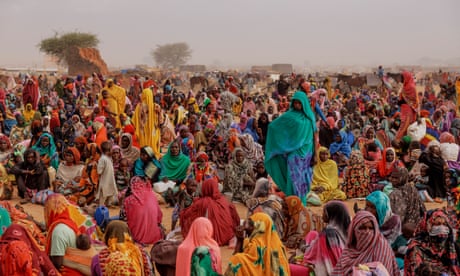Women are the backbone of Africas economy but there is a $42bn funding gap between access to men and women. Two of the key challenges are higher interest rates for women who lack collateral, due to unfair land laws and are often seen as a greater risk.
Addressing these gender inequalities could have a major impact on the continents growth as well as the lives of men, women and children across Africa. Women are said to reinvest 90% of their earnings back into their communities, compared to 35% for men.
And, according to the United Nations Development Programme, failing to include women fully in economic life costs sub-Saharan Africa $95bn in lost productivity every year.
Monica Musonda, is the CEO of Java Foods, a Zambian-based food-processing business which she founded in 2012. She is one of very few Zambian women who run a food processing business at scale, and her leadership and vision have grown Java Foods into one of the leading food manufacturers in the country.
As such, she is familiar with the challenges facing women in agribusiness and what needs to be done to help them realize their huge potential.
Women are instrumental in the agribusiness value chain where I work but have failed to scale their business due to a variety of reasons including access to affordable capital, explains Monica.
At a time when the whole world is concerned about food security, Africa can begin to reverse challenges by being much more deliberate about supporting women-run agri-businesses and addressing barriers.
Monica continues: When I began my business, I was paying interest rates of 27% per annum and it was very difficult to make a profit. There were also really prohibitive collateral requirements, and, in the end, I had to put down personal assets to back the company loan.
Statistics show that women are less likely to default on loans and women-owned businesses are less likely to end in bankruptcy, so there is no excuse for these unfair challenges.
As an Ambassador for AFAWA ( Affirmative Finance Action for Women in Africa ), Monica wants more businesswomen to be aware of the support it provides.
AFAWA, the Africa Development Banks flagship gender initiative, aims to unlock $5bn in financing for 30,000 womens businesses by 2026. Already, in three years, the volume of investments towards women-led small and medium enterprises (WSMEs) has increased ten-fold.
In the last three years, AFAWA has approved $1.7bn for women entrepreneurs in at least 32 countries through 96 financial institutions. This has supported more than 7,000 WSMEs so far.
But addressing the finance gap is not enough to tackle the more deep-rooted values and wider challenges holding back women and girls.
One of the biggest challenges faced by women starting a business is the expectation that they have the primary responsibility to look after the family and children. In several African countries, including DRC and Mauritania, there are laws that state that a husband constitutes the head of household while a wifes role is to assist him in managing the family.
There are so many laws and practices that need to be changed to allow women to meet their full potential as successful businesswomen. For example, many African countries, such as Kenya and Malawi, have implemented principles to improve gender parity in local land governance structures, but these principles are often not practised at the community level. More also needs to be done to address areas such as high school-dropout rates for girls, where in Sub-Saharan Africa only 25% of girls complete their secondary level education.
This is why AFAWA offers capacity building and training, in addition to loans, to enhance business productivity and growth. It also engages with African governments and other key stakeholders to support legal, policy and regulatory reforms that strike down the structural barriers impeding women in business.
Another AFAWA ambassador, Assata Lam, immediately started making changes when she became director general of the Investment Promotion Agency of Mauritania (APIM), among them introducing longer maternity leave allowances and granting paternity leave.
Assisting women to register their businesses so that they can apply for financing is a priority for APIM. It has also worked with AFAWA to offer business skills training to women working in fishing, Mauritanias biggest industry sector. There, women account for 90% of the small-scale activities, such as smoking the fish and selling in markets, and very few women occupy senior roles.
Aissata says: Its important that everyone understands the gender disparities that exist in business and takes action to address it. Having more women in senior political positions in Africa would definitely help.
Representation matters, she continues. When African women see women like







